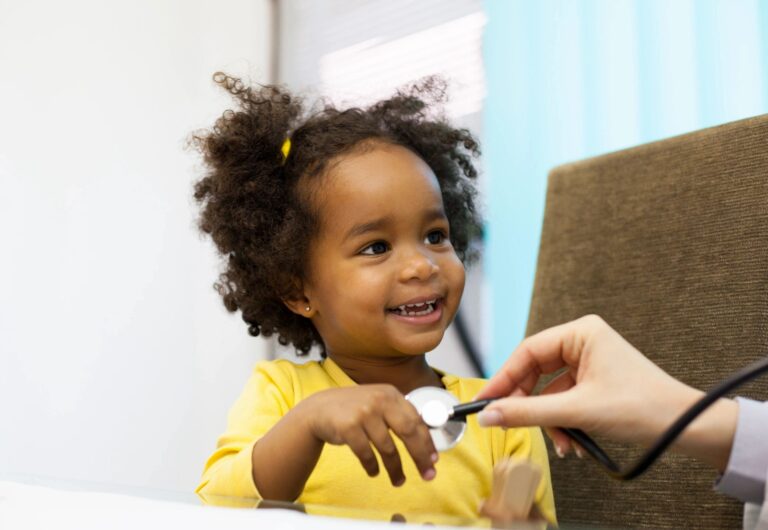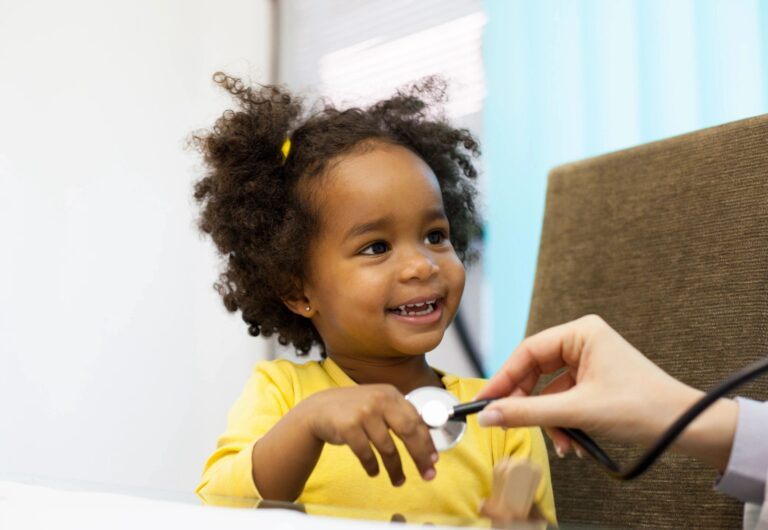Dehydration in children
Dehydration in children occurs when a child’s body loses more fluids than it takes in, leading to an insufficient amount of water and electrolytes (salts) in the body. Dehydration can be caused by various factors, including illness, hot weather, inadequate fluid intake, or certain medical conditions. It’s crucial to recognize the signs of dehydration in children and take prompt action to prevent complications. Here’s what you need to know:
Causes:
- Illness: Gastroenteritis (stomach flu), diarrhea, vomiting, and fever are common causes of dehydration in children.
- Inadequate Fluid Intake: Children may become dehydrated if they don’t drink enough fluids, especially in hot weather or during physical activity.
- Excessive Fluid Loss: Conditions such as diabetes, cystic fibrosis, or kidney problems can lead to increased fluid loss and dehydration.
- Fever: High fever can cause a child to sweat more and lose fluids, increasing the risk of dehydration.
- Medications: Some medications, such as diuretics (water pills), can increase urine output and lead to dehydration.
Symptoms:
The signs and symptoms of dehydration in children can vary depending on the severity of the condition. Common signs include:
- Thirst: Increased thirst is often an early sign of dehydration.
- Dry Mouth and Dry Skin: Dry or sticky mouth, cracked lips, and dry skin can indicate dehydration.
- Decreased Urination: Infrequent urination or dark yellow urine may be signs of dehydration.
- Sunken Eyes: Sunken or hollow-looking eyes can be a sign of moderate to severe dehydration.
- Lethargy or Irritability: A child may become unusually tired, cranky, or listless.
- No Tears When Crying: Infants may have dry eyes and not produce tears when crying.
- Decreased Wet Diapers: In infants and young children, a noticeable decrease in wet diapers can be concerning.
- Dizziness or Fainting: In severe cases, dehydration can lead to dizziness, fainting, rapid heartbeat, or low blood pressure.
Treatment:
- The treatment of dehydration in children involves replenishing fluids and electrolytes lost due to fluid imbalance.
- For mild to moderate dehydration, oral rehydration solutions (ORS) like Pedialyte or an equivalent can be given to provide the necessary fluids and electrolytes. Gradual sips are recommended.
- In severe cases or if a child cannot tolerate oral fluids, hospitalization and intravenous (IV) fluid therapy may be required.
- Encourage the child to drink clear fluids, such as water, diluted fruit juices, or an ORS, and avoid sugary or caffeinated beverages.
Prevention:
- Ensure your child drinks an adequate amount of fluids daily, especially in hot weather or during physical activity.
- Encourage regular handwashing to reduce the risk of illness-related dehydration.
- Be vigilant about monitoring your child’s fluid intake if they are ill with vomiting, diarrhea, or fever.
- Dress your child appropriately for the weather to prevent excessive sweating in hot conditions.
- Teach older children the importance of staying hydrated and recognizing the signs of dehydration.
Dehydration can be serious, especially in infants and young children, and it requires prompt attention. If you suspect that your child is dehydrated or if you notice any of the symptoms mentioned above, consult a healthcare provider for proper evaluation and guidance on fluid replacement.
------------From our Sponsors------------









